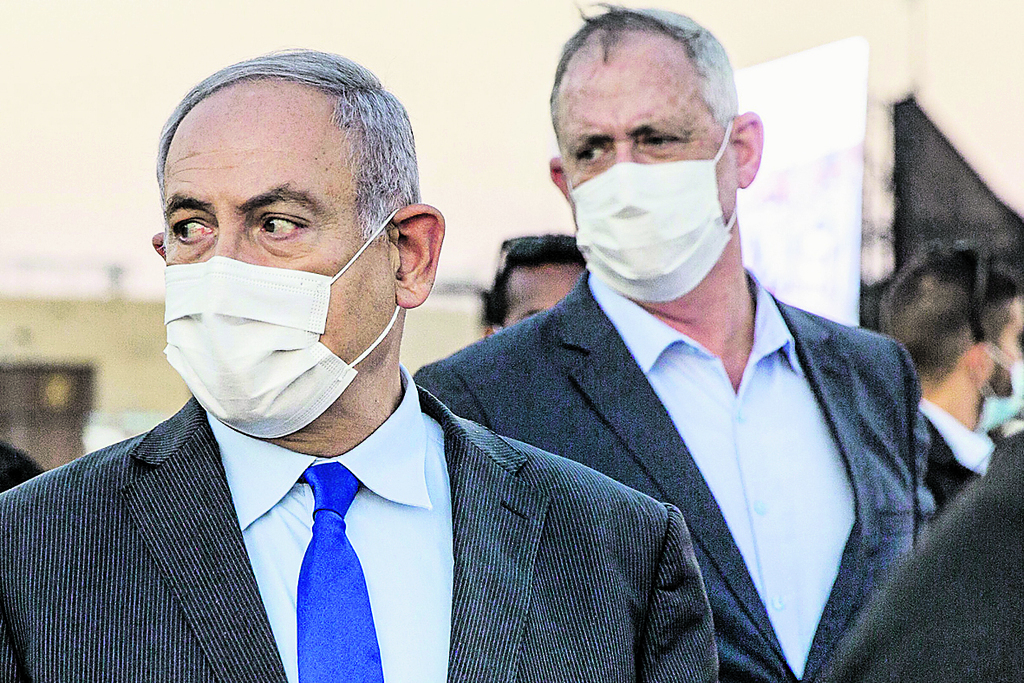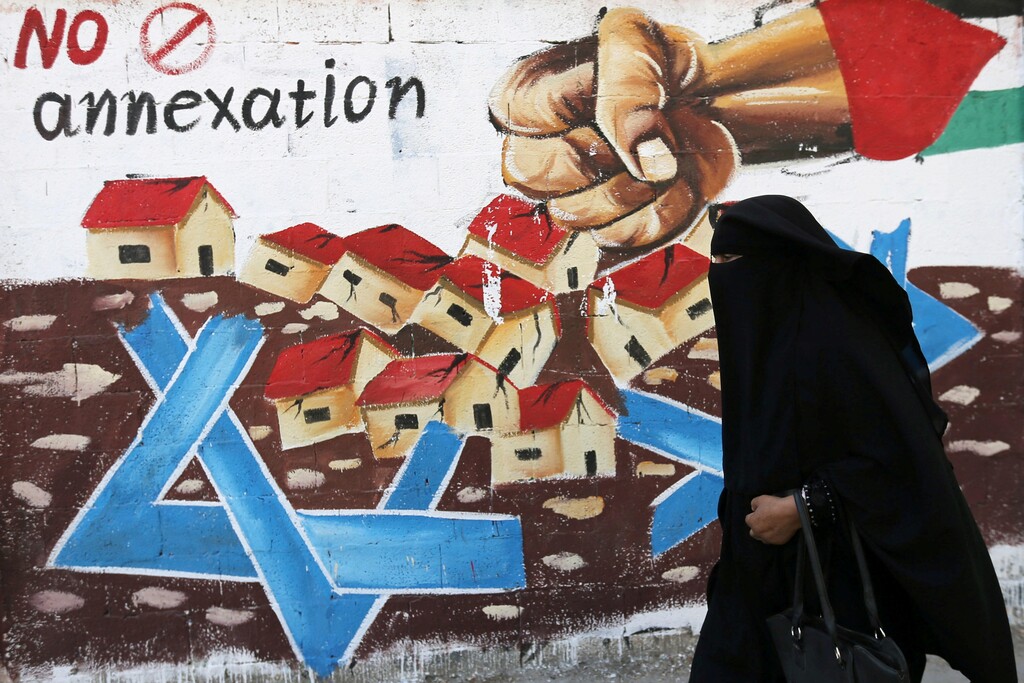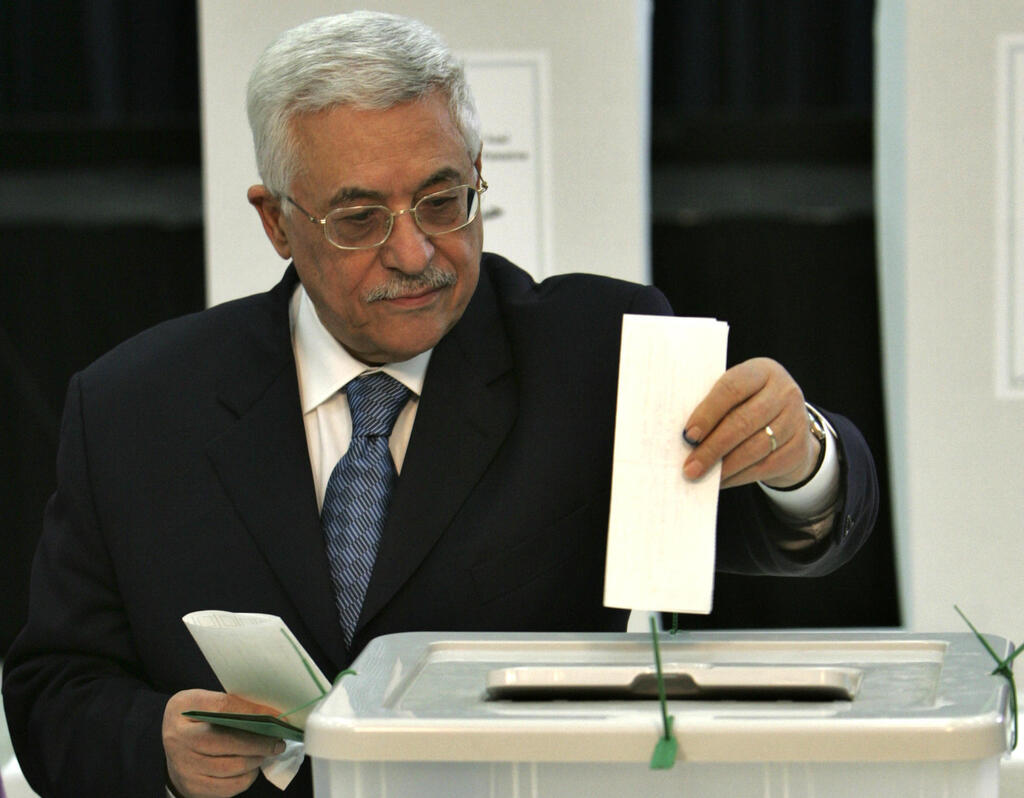It has become customary to divide the parties running in the March 23 election into the pro- and anti-Netanyahu camps, or more accurately, the probability of them joining a coalition headed by the incumbent prime minister.
It is a reasonable method of categorization, but not the only one. Going deeper and looking over the various parties' manifestos and ideologies, especially on the Palestinian conflict, creates new divisions not seen at a first glance.
One bloc is the diplomatic center, a collection of parties that do not support (or have stopped supporting) the idea of Greater Israel and have instead adopted the two-state solution, however the final borders may look.
In this category sit centrist parties Yesh Atid led by Yair Lapid and Benny Gantz's Blue & White - and even the right-wing Likud.
Yes, even the Likud has made a political shift on the matter, especially under the leadership of Netanyahu, who decided to forgo annexation of West Bank land in favor of normalization agreements with far-flung Arab states that have do not have a side in the Palestinian issue.
In this group also sit the ultra-Orthodox parties Shas and United Torah Judaism, which have in the past already demonstrated their principled support for the idea of a Palestinian state.
4 View gallery


Defense Minister Benny Gantz, right, and Prime Minister Benjamin Netanyahu
(Photo: AFP)
To the right of this group, likely numbering around 37 MKs, sit Gideon Saar's New Hope, Naftali Bennet's Yamina, Avigdor Liberman's Israel Beytenu and the extremist Religious Zionism party. Each one of these parties outright refuses to see the two-state solution as a viable option. Again, 37 MKs is a sizeable minority of the 120-seat Knesset, but still a minority at that.
To the left, are Labor and Meretz, two parties that on a good day are expected to pull in about 10 seats between them.
Both parties have a lot in common with the center bloc: recognition of the Palestinians' right to self-determination (as originally stipulated in the 1978-79 Camp David Accords signed by then-Likud prime minister Menachem Begin) and a willingness to a compromise on "territory for peace," with their idea of geographical returns far more generous than that of the centrists.
Labor and Meretz, unlike their counterparts in the center, are more apt to use terms like "occupation" and "territories."
To the left of them stand the predominantly-Arab Joint List and Ra'am.
4 View gallery


A Gaza woman walks past a mural protesting Israel's now defunct plan to extend its sovereignty over parts of the West Bank
(Photo: Reuters)
Could this division be the basis upon which the next or a future government is formed? Possibly.
Without making any far-reaching predictions for 2021, it is safe to assume that the long-forgotten Palestinian issue will return to the top of the priorities list, along with sociodemographic issues that have degenerated into economic downfall: rampant poverty and high unemployment in the Arab and ultra-Orthodox sectors.
Even on this issue, the center and the left-wing have much more in common than the center does with the right-wing.
The assumption that the Palestinian issue will return to the forefront is based on several factors: the new administration in Washington, the Palestinian elections set to take place in May and July, which risk aging Palestinian President Mahmoud Abbas' powerbase, and the pressure put on Ramallah by moderate Arab states to resume talks with Israel.
4 View gallery


Palestinian President Mahmoud Abbas casts a ballot in the 2005 Palestinian Parliamentary elections, at his headquarters in Ramallah
(Photo: AP)
Another factor that cannot be ruled out is the collapse of Hamas' rule over Gaza. The terror group has failed to meet its citizens' basic needs and in many ways is living on borrowed time fueled by taxes being paid to the Palestinian Authority.
None of this is set in stone, but nevertheless, one must assume that the critical question Israel's various parties will have to grapple with in the future is not whether to join Benjamin Netanyahu, but whether they will lend a hand in pursuing a settlement with the Palestinians.
They will also have to decide whether a new economic plan prioritizes reducing government debt and boosting domestic product or helping the unemployment and lack of job opportunities in the Arab and ultra-Orthodox sectors, where many live on or below the poverty line.
This election is not just about "Yes Bibi" or "No Bibi," but also whether we want to live as a prosperous state and in peace not only with our neighbors, but with each other.


